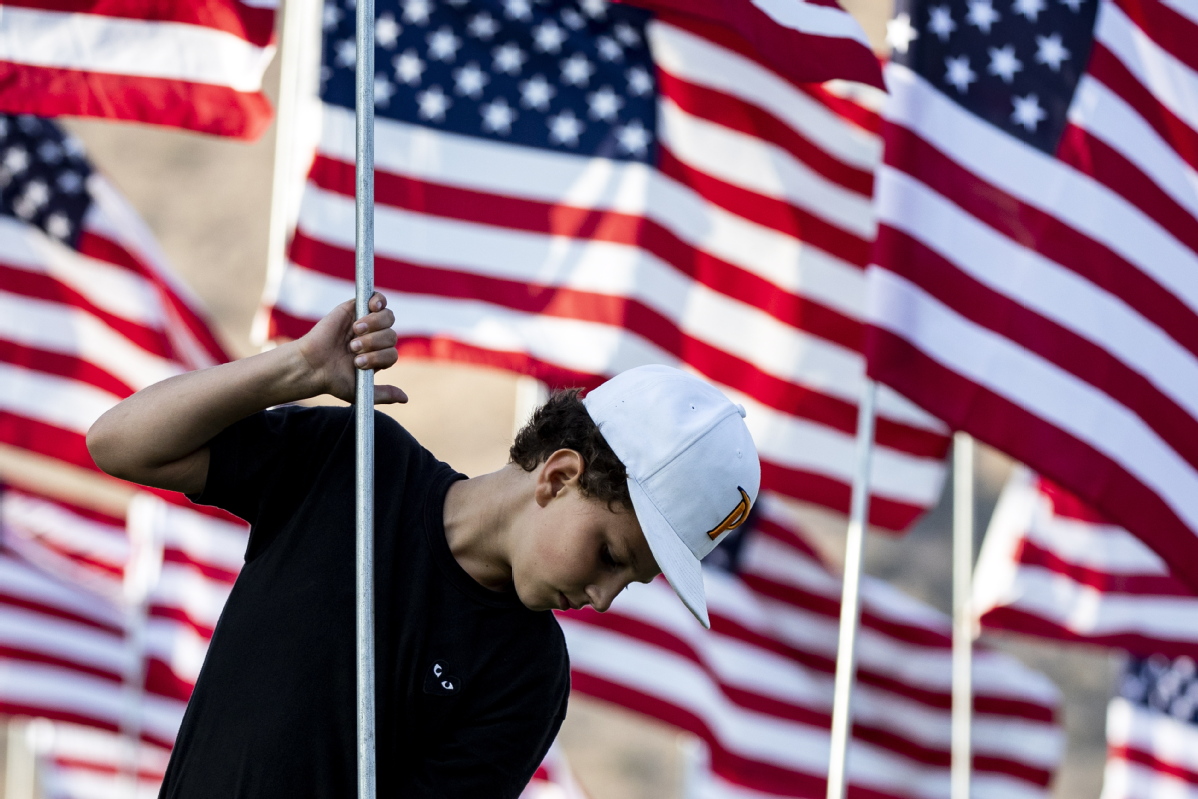US 'double standard' on terrorism seen as a hindrance
By YIFAN XU in Washington | China Daily Global | Updated: 2021-09-24 10:29

Global counterterrorism collaboration is needed to prevent Afghanistan from again becoming a haven for terrorists following the United States' chaotic withdrawal, according to Washington observers.
But one roadblock to that cooperation is how the US categorizes the East Turkestan Islamic Movement (ETIM).
The ETIM was designated a terrorist organization by the US in 2002, as Washington sought Beijing's help in the global war on terror in the aftermath of the Sept 11, 2001, terrorist attacks.
The ETIM has advocated for the independence of China's Xinjiang autonomous region and is blamed for orchestrating ethnic conflicts and a series of terrorist assaults on China's northern border.
However, in November 2020, the US State Department downgraded the ETIM and removed it from the terrorist list.
Beijing has consistently expressed opposition to the move, claiming that the US applies a double standard in designating terrorists.
The US placed ETIM on the list of foreign terrorist organizations because it was well established as engaging in terrorist activity and training with al-Qaida and removing ETIM from the terrorist watch list was purely political, said Bill Jones, the Washington bureau chief of Executive Intelligence Review.
"The Trump administration made a political decision of withdrawing the terrorist designation of ETIM, and the Biden administration accepted it. The US did not preclude that the ETIM was involved in terrorist actions. So, it is creating a double standard trying to keep the ETIM alive," Jones told China Daily.
It was clearly directed at China, and may have caused unrest in Xinjiang, he added.
"It is not only in counterterrorism. There is a clear distinction in how the US deals with the same phenomenon with 'friends' and those considered 'rivals'; it is clearly a geopolitical tool," Jones said.
"It is a political maneuver; the US is pursuing an ambiguous standard in the definition of terrorist, especially for other countries, which sets the biggest obstacle to cooperation between the two sides," said Samuel Mok, a former chief financial officer of the US Labor Department.
Jones said it might help improve US-China relations if the Biden administration were to put the ETIM back on the list of terrorist groups.
"So, I do not know if that is going to happen anytime soon. That would be a prerequisite for any closer cooperation regarding terrorism between the United States and China, and hopefully, that could occur."
However, analysts agree that Afghanistan is a place where the two countries can seek more cooperation.
"Because US-China relations are at a low point, an uptick is theoretically possible. The overall mistrust of strategic intentions [brought difficulties to cooperation]," said Douglas Paal, a China researcher at the Carnegie Endowment for International Peace.
"The fall of Afghanistan does diminish the US' tendency under Biden to insist on speaking from a 'position of strength' to Beijing," Paal said.
"Right now, both countries must focus on points they have in common; this can build mutual trust and lead to smoother relations," said Ian Johnson, a journalist who has spent 20 years in China.
























